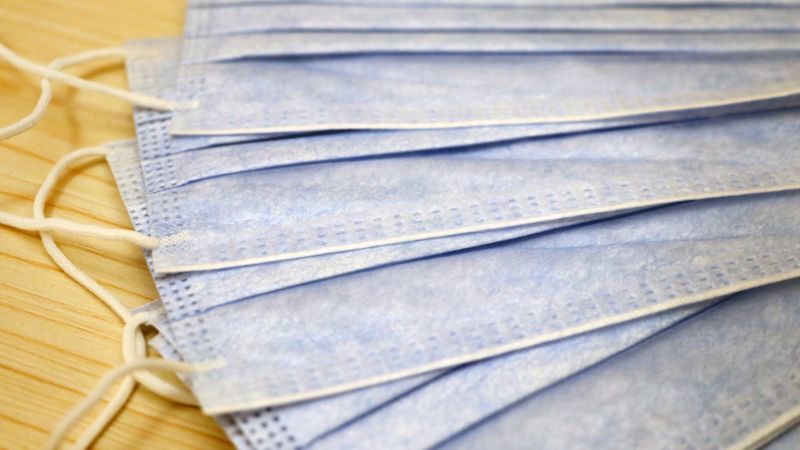As the world struggles to cope with the COVID-19 pandemic, demand for personal protective equipment (PPE) has skyrocketed, and many new players — both legitimate entrepreneurs and criminals — are jumping into the market, creating additional financial crime and lending risk, experts say.
Meanwhile, banks and manufacturers are scrambling to conduct enhanced due diligence on clients tied to PPE deals to mitigate the risk of unwitting involvement in money laundering and to avoid making bad loans, experts involved in the investigations told Thomson Reuters Regulatory Intelligence (TRRI). As in many industries, manufacturers of PPE do not sell their product directly to end-users such as hospitals; instead, distributors act as middlemen.
Since the pandemic began and demand for PPE spiked, new players, including IT firms and cryptocurrency entrepreneurs, have flooded into PPE distribution channels seeking to profit from purchase and resale, said Debra Geister, chief executive of consultancy Section 2 Financial Intelligence Solutions. “There are a lot of people trying to cash in on PPE right now, that’s part of why we’ve seen the PPE cost go sky-high,” Geister said. “There are lots of people jumping in here that have no business being there, it’s kind of crazy.”
But legitimate entrepreneurs are not the only businessmen behind LLCs and other entities that are flooding into the PPE market. Because many of the companies that want to profit from PPE distribution lack adequate capital for large deals, they are turning to anyone willing to provide funds — and some are neglecting to determine whether the money in question comes from criminals or other problematic sources, said Geister, whose firm has been hired by traditional PPE players to probe newcomers.
Small companies leaping into the market “end up going to a third-party funding sources, and a lot of these funding sources are tied to hybrid threat groups,” such as drug cartels and other organized crime networks, Geister explained. “We did a deep dive on a purported distributor, but as we started doing the research, we found them to be strongly tied back to a (drug) cartel,” she said, adding that while probing a capital group that was moving into PPE, her team “started taking its funding sources apart and we found there was a whole series of shell companies… with ties to Russia, China and various nefarious places.”
Due diligence is the key
“The funding sources could be cartels, hostile nation states, or any number of different entities that are willing to fund this because as their money is used to buy PPE, they’ve just cleansed their funds,” she said, noting that PPE manufactures must “do extreme due diligence on anyone they allow to purchase their PPE at this point” to avoid involvement in money laundering.
For instance, PPE manufactures must question the source of buyers’ money as well as why a company from other industry — such as IT — would try to get involved in the PPE business, which requires medical connections and distribution channels “that are outside their world,” Geister said. “If they can’t answer those questions clearly, or if they’re tap-dancing around those questions, there’s a problem and you need to do a deep dive.”
Banks are asking similar questions as their customers begin using their accounts to facilitate PPE deals. If a small business client suddenly receives $50 million into its account as part of a PPE transaction, the bank is asking “Where is this money coming from?” Geister explained. “The bank has to understand what that source of funds is and where the money is going. Is there a funding source we can’t track down or verify? Then the bank has to decide whether it should be involved in the transaction.”
The growth in PPE industry players can be likened to “a gold rush situation,” a veteran bank anti-money laundering compliance officer told TRRI. “You have the legitimate businesses who want to do the work, sell the products, and support he community, but you also have the bad guys who want to take advantage of the situation.”
Banks have been receiving “a lot of information from law enforcement about how bad guys are utilizing PPE as either a front to conceal money laundering or as a ripe mechanism for fraud,” the compliance officer said. “Banks are designing strategies to detect it, but they’re not perfect.”
Banks should begin by conducting enhanced due diligence on newly opened accounts for entities new to the PPE market, and should conduct enhanced monitoring moving forward. Banks should not, however, shun PPE players without cause and thereby “choose winners and losers in the market,” the compliance officer noted.
As early as March and April, law enforcement grew concerned that a number of entities were committing blatant fraud by selling bogus or even non-existent PPE to desperate buyers around the world as the extent of the COVID-19 crisis came into focus and PPE demand spiked.
More recently, however, authorities have grown concerned that criminal organizations are creating purported PPE firms to launder money generated by drug trafficking and other crimes. For example, cartels that can no longer safely wash their ill-gotten gains via gas stations, restaurants, bars, and other cash-intensive businesses due to the economic slowdown can create fake PPE firms to explain international funds transfers around the world, the compliance officer said.
“So, the idea is that you hide the flow within the tidal wave,” he added. “You get to hide among the noise of PPE commerce.”








